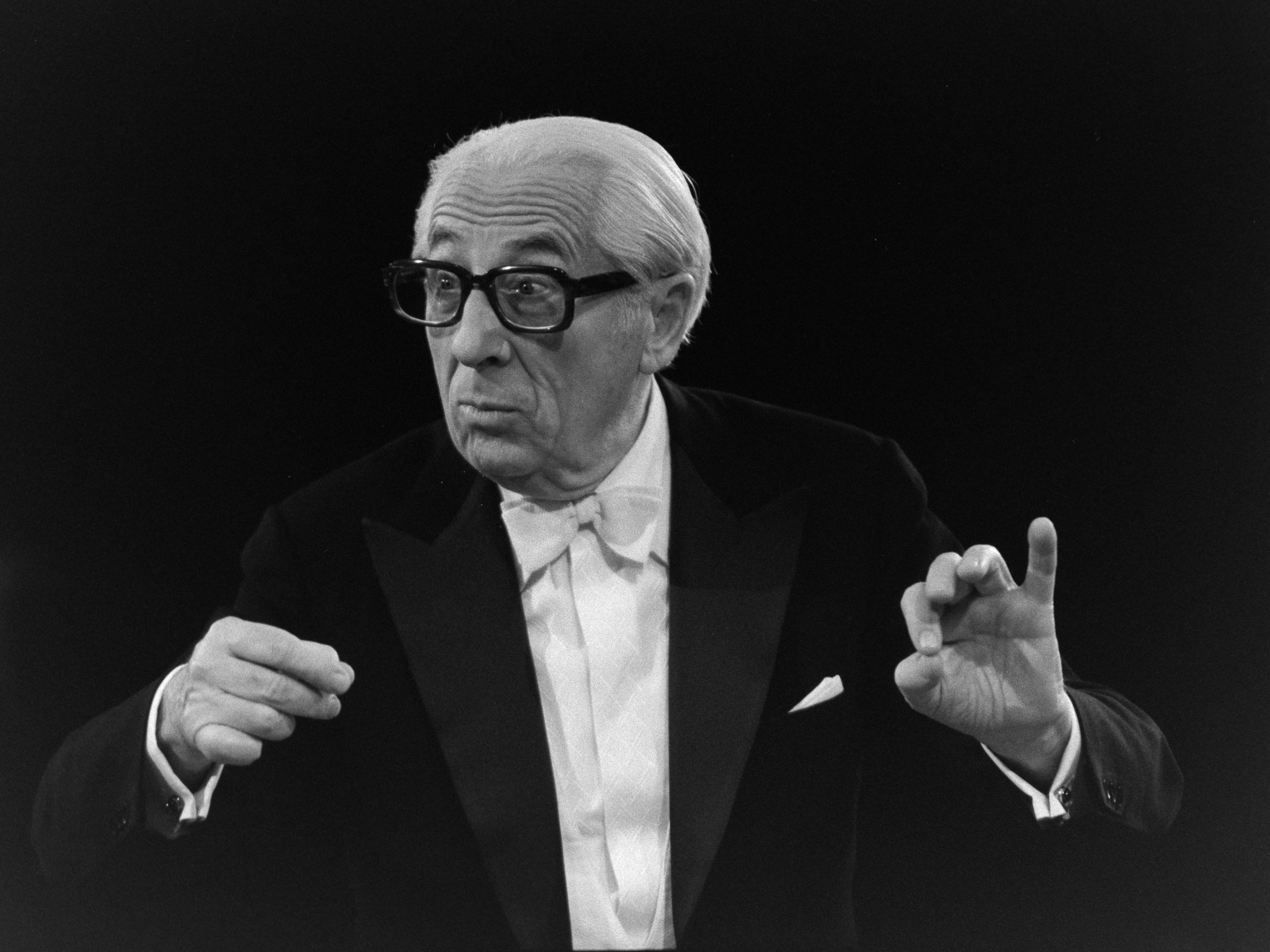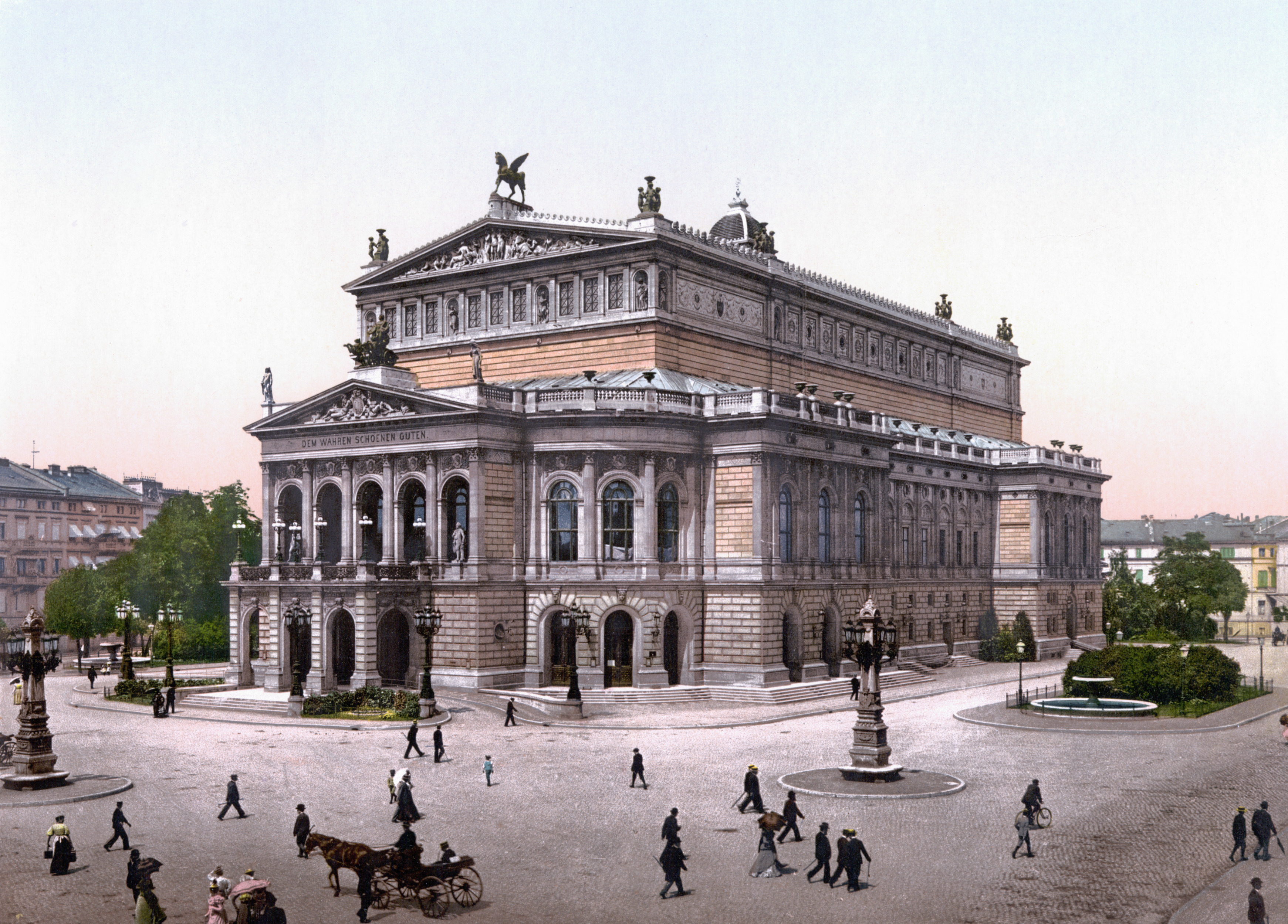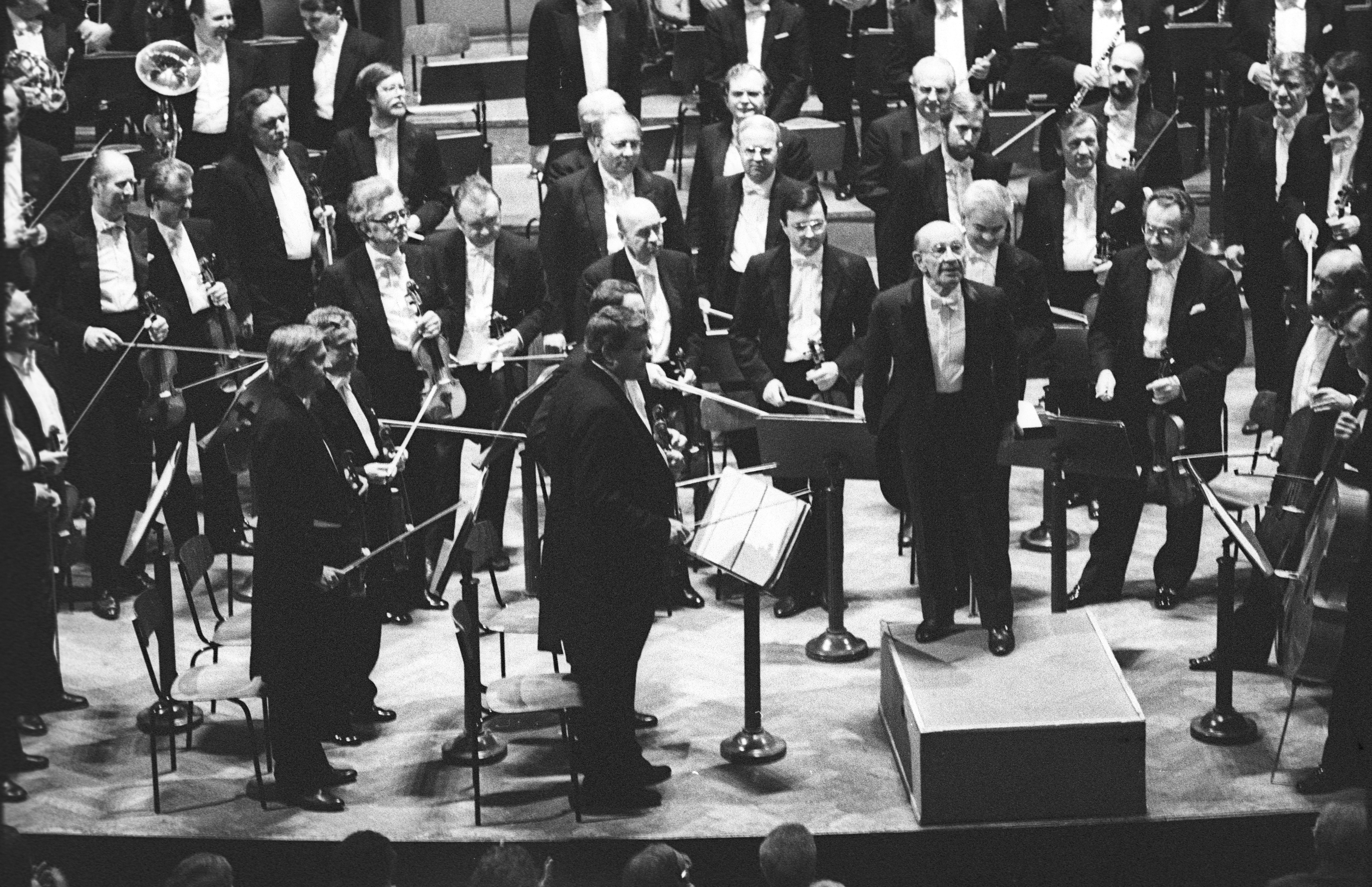|
Gabriele Schreckenbach
Gabriele Schreckenbach (born in Berlin) is a German contralto singer in opera and concert and an academic voice teacher. She recorded Bach cantatas with the Gächinger Kantorei and Helmuth Rilling. She recorded choral works of Mozart, his ''Waisenhausmesse'' K. 139 and rarely performed pieces, with the RIAS Kammerchor and the Berlin Radio Symphony Orchestra, conducted by Marcus Creed. She recorded the part of Ursula in the opera ''Feuersnot'' of Richard Strauss with Erich Leinsdorf and parts in three operas of Paul Hindemith with Gerd Albrecht, who also conducted recordings of ''Die Gezeichneten'' of Franz Schreker and ''Der Corregidor'' of Hugo Wolf.Gabriele Schreckenbach on Catálogo de Operaclass [...More Info...] [...Related Items...] OR: [Wikipedia] [Google] [Baidu] |
Hochschule Der Künste Berlin
The Universität der Künste Berlin (UdK; also known in English as the Berlin University of the Arts), situated in Berlin, Germany, is the largest art school in Europe. It is a public art and design school, and one of the four research universities in the city. The university is known for being one of the biggest and most diversified universities of the arts worldwide. It has four colleges specialising in fine arts, architecture, media and design, music and the performing arts with around 3,500 students. Thus the UdK is one of only three universities in Germany to unite the faculties of art and music in one institution. The teaching offered at the four colleges encompasses the full spectrum of the arts and related academic studies in more than 40 courses. Having the right to confer doctorates and post-doctoral qualifications, Berlin University of the Arts is also one of Germany's few art colleges with full university status. Outstanding professors and students at all its colleges ... [...More Info...] [...Related Items...] OR: [Wikipedia] [Google] [Baidu] |
Paul Hindemith
Paul Hindemith (; 16 November 189528 December 1963) was a German composer, music theorist, teacher, violist and conductor. He founded the Amar Quartet in 1921, touring extensively in Europe. As a composer, he became a major advocate of the ''Neue Sachlichkeit'' (new objectivity) style of music in the 1920s, with compositions such as '' Kammermusik'', including works with viola and viola d'amore as solo instruments in a neo-Bachian spirit. Other notable compositions include his song cycle ''Das Marienleben'' (1923), ''Der Schwanendreher'' for viola and orchestra (1935), the opera ''Mathis der Maler'' (1938), the '' Symphonic Metamorphosis of Themes by Carl Maria von Weber'' (1943), and the oratorio ''When Lilacs Last in the Dooryard Bloom'd'', a requiem based on Walt Whitman's poem (1946). Life and career Hindemith was born in Hanau, near Frankfurt, the eldest child of the painter and decorator Robert Hindemith from Lower Silesia and his wife Marie Hindemith, née Warnecke. H ... [...More Info...] [...Related Items...] OR: [Wikipedia] [Google] [Baidu] |
German Women Academics
German(s) may refer to: * Germany (of or related to) **Germania (historical use) * Germans, citizens of Germany, people of German ancestry, or native speakers of the German language ** For citizens of Germany, see also German nationality law **Germanic peoples (Roman times) * German language **any of the Germanic languages * German cuisine, traditional foods of Germany People * German (given name) * German (surname) * Germán, a Spanish name Places * German (parish), Isle of Man * German, Albania, or Gërmej * German, Bulgaria * German, Iran * German, North Macedonia * German, New York, U.S. * Agios Germanos, Greece Other uses * German (mythology), a South Slavic mythological being * Germans (band), a Canadian rock band * German (song), "German" (song), a 2019 song by No Money Enterprise * ''The German'', a 2008 short film * "The Germans", an episode of ''Fawlty Towers'' * ''The German'', a nickname for Congolese rebel André Kisase Ngandu See also * Germanic (disambi ... [...More Info...] [...Related Items...] OR: [Wikipedia] [Google] [Baidu] |
German Opera Singers
German(s) may refer to: * Germany (of or related to) ** Germania (historical use) * Germans, citizens of Germany, people of German ancestry, or native speakers of the German language ** For citizens of Germany, see also German nationality law **Germanic peoples (Roman times) * German language **any of the Germanic languages * German cuisine, traditional foods of Germany People * German (given name) * German (surname) * Germán, a Spanish name Places * German (parish), Isle of Man * German, Albania, or Gërmej * German, Bulgaria * German, Iran * German, North Macedonia * German, New York, U.S. * Agios Germanos, Greece Other uses * German (mythology), a South Slavic mythological being * Germans (band), a Canadian rock band * "German" (song), a 2019 song by No Money Enterprise * ''The German'', a 2008 short film * "The Germans", an episode of ''Fawlty Towers'' * ''The German'', a nickname for Congolese rebel André Kisase Ngandu See also * Germanic (other) * ... [...More Info...] [...Related Items...] OR: [Wikipedia] [Google] [Baidu] |
German Operatic Contraltos
German(s) may refer to: * Germany (of or related to) **Germania (historical use) * Germans, citizens of Germany, people of German ancestry, or native speakers of the German language ** For citizens of Germany, see also German nationality law **Germanic peoples (Roman times) * German language **any of the Germanic languages * German cuisine, traditional foods of Germany People * German (given name) * German (surname) * Germán, a Spanish name Places * German (parish), Isle of Man * German, Albania, or Gërmej * German, Bulgaria * German, Iran * German, North Macedonia * German, New York, U.S. * Agios Germanos, Greece Other uses * German (mythology), a South Slavic mythological being * Germans (band), a Canadian rock band * "German" (song), a 2019 song by No Money Enterprise * ''The German'', a 2008 short film * "The Germans", an episode of ''Fawlty Towers'' * ''The German'', a nickname for Congolese rebel André Kisase Ngandu See also * Germanic (other) * German ... [...More Info...] [...Related Items...] OR: [Wikipedia] [Google] [Baidu] |
Ferdinand Leitner
Ferdinand Leitner (4 March 1912 in Berlin – 3 June 1996 in Zürich) was a German conductor. Leitner studied under Franz Schreker, Julius Prüwer, Artur Schnabel and Karl Muck. He also was a composition student with Robert Kahn. Starting as a pianist, through the help of Fritz Busch, he became a conductor in the 1930s. He was conductor of the Nollendorfplatz Theater in Berlin from 1943 to 1945; in Hanover from 1945 to 1946; in Munich from 1946 to 1947; and the General Music Director of the Württemberg State Opera house (German "Staatstheater Stuttgart") in Stuttgart from 1947 until 1969. To honour him, the city of Stuttgart has named a pedestrian bridge, that connects the Upper part (where the Staatstheater is located) and the Central part of the "Schlossgarten" (castle) park, after him (Ferdinand-Leitner-Steg). He is famous as a conductor of opera, his favourite composers being Wagner, Richard Strauss, Mozart, and twentieth-century composers Carl Orff and Karl Amadeus Hartm ... [...More Info...] [...Related Items...] OR: [Wikipedia] [Google] [Baidu] |
Oedipus Rex (opera)
''Oedipus rex'' is an opera-oratorio by Igor Stravinsky, scored for orchestra, speaker, soloists, and male chorus. The libretto, based on Sophocles's tragedy, was written by Jean Cocteau in French and then translated by Abbé Jean Daniélou into Latin; the narration, however, is performed in the language of the audience. ''Oedipus rex'' was written towards the beginning of Stravinsky's neoclassical period, and is considered one of the finest works from this phase of the composer's career. He had considered setting the work in Ancient Greek, but decided ultimately on Latin: in his words "a medium not dead but turned to stone." Performance history ''Oedipus rex'' is sometimes performed in the concert hall as an oratorio, similarly to its original performance in the Théâtre Sarah Bernhardt in Paris on 30 May 1927, and at its American premiere the following year, given by the Boston Symphony Orchestra and the Harvard Glee Club. It has also been presented on stage as an opera, th ... [...More Info...] [...Related Items...] OR: [Wikipedia] [Google] [Baidu] |
Der Corregidor
''Der Corregidor'' is a comic opera by Hugo Wolf. The German libretto was written by Rosa Mayreder-Obermayer, based on the short novel '' El sombrero de tres picos'' by Pedro Antonio de Alarcón. History Wolf composed the opera in 1895 and revised it in 1897. The opera was first performed at the Mannheim National Theatre on 7 June 1896 with Hugo Röhr as conductor. Gustav Mahler made an arrangement of the opera's prelude. Roles Synopsis :Time and place: in and around an unnamed village in Andalusia, in the year 1804. Prelude Act 1 Scene 1: Tio Lukas is picking grapes and preparing his millyard for the arrival of an unnamed Bishop and conversing with a neighbor. The neighbor taunts Lukas, saying that the only reason people show him any favor is because he has such a pretty wife. Lukas shrugs off the comment. The neighbor leaves, and Lukas climbs up into an arbor to continue his preparations. Scene 2: Frasquita enters the yard and sets the table while singing to herself. Lu ... [...More Info...] [...Related Items...] OR: [Wikipedia] [Google] [Baidu] |
Franz Schreker
Franz Schreker (originally ''Schrecker''; 23 March 1878 – 21 March 1934) was an Austrian composer, conductor, teacher and administrator. Primarily a composer of operas, Schreker developed a style characterized by aesthetic plurality (a mixture of Romanticism, Naturalism, Symbolism, Impressionism, Expressionism and Neue Sachlichkeit), timbral experimentation, strategies of extended tonality and conception of total music theatre into the narrative of 20th-century music. Formative years He was born as Franz Schrecker in Monaco, the eldest son of the Bohemian Jewish court photographer Ignaz Schrecker, and his wife, Eleonore von Clossmann, who was a member of the Catholic aristocracy of Styria. He grew up during travels across half of Europe and, after the early death of his father, the family moved from Linz to Vienna (1888) where in 1892, with the help of a scholarship, Schreker entered the Vienna Conservatory. Starting with violin studies, with Sigismund Bachrich and Arnold R ... [...More Info...] [...Related Items...] OR: [Wikipedia] [Google] [Baidu] |
Die Gezeichneten
' (''The Branded'' or ''The Stigmatized'') is an opera in three acts by Franz Schreker with a German-language libretto by the composer. Composition history Schreker wrote the libretto in 1911 at the request of composer Alexander Zemlinsky based on the 1904 play ''Hidalla'' by German playwright Frank Wedekind. However, Schreker decided to set the text himself, and completed the opera in 1915. The score was first published by Universal Edition Vienna. Performance history An expanded concert version of the overture to the opera, entitled "", was performed at the Vienna Musikverein on 8 February 1914 by the Vienna Philharmonic, conducted by Felix Weingartner. The complete opera was first performed on 25 April 1918 by the Oper Frankfurt, conducted by Ludwig Rottenberg. It established Schreker as the pre-eminent opera composer of his generation and won him the support of Germany's foremost music critic Paul Bekker. Before the composer's music was banned in 1933, due to his Jewi ... [...More Info...] [...Related Items...] OR: [Wikipedia] [Google] [Baidu] |
Gerd Albrecht
Gerd Albrecht (19 July 1935 – 2 February 2014) was a German conductor. Biography Albrecht was born in Essen, the son of the musicologist Hans Albrecht (1902–1961). He studied music in Kiel and in Hamburg, where his teachers included Wilhelm Brückner-Rüggeberg. He was a first-prize winner at the International Besançon Competition for Young Conductors at age 22. His first post was as a repetiteur at the Stuttgart State Opera. Later, he became Senior Kapellmeister at the Staatstheater Mainz, and '' Generalmusikdirektor'' in Lübeck. He also held posts at the Deutsche Oper Berlin, the Tonhalle-Orchester Zürich and the Hamburg State Opera. His work in contemporary opera included conducting Aribert Reimann's ''Lear'' in both its world premiere and its United States premiere, as well as making the first commercial recording of the opera. His other commercial recordings include Robert Schumann's ''Genoveva'' and ''Manfred'', and the first commercial recording of Hans Wer ... [...More Info...] [...Related Items...] OR: [Wikipedia] [Google] [Baidu] |
Erich Leinsdorf
Erich Leinsdorf (born Erich Landauer; February 4, 1912 – September 11, 1993) was an Austrian-born American conductor. He performed and recorded with leading orchestras and opera companies throughout the United States and Europe, earning a reputation for exacting standards as well as an acerbic personality. He also published books and essays on musical matters. Biography Leinsdorf was born to a Jewish family in Vienna, and was studying music at a local school by the age of 5. He played the cello and studied composition. In his teens, Leinsdorf worked as a piano accompanist for singers. He studied conducting at the Mozarteum in Salzburg, and later at the University of Vienna and the Vienna Academy of Music. From 1934 to 1937 he worked as an assistant to the noted conductors Bruno Walter and Arturo Toscanini at the Salzburg Festival. In November 1937, Leinsdorf travelled to the United States to take up a position as assistant conductor at the Metropolitan Opera in New Yor ... [...More Info...] [...Related Items...] OR: [Wikipedia] [Google] [Baidu] |
_by_Erling_Mandelmann.jpg)


.jpg)

